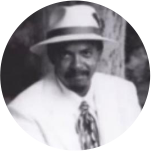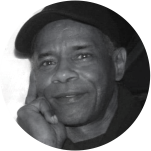
Label: Kent – Catalog: CDKEND 474 – Release Date: 28th May 2021 – Format: CD
This month sees the release of the last in Kent’s trilogy spotlighting black America’s involvement in the Vietnam war. It’s been a long wait but we feel that the 23 tracks here more than uphold the high standard of its predecessors – “A Soldier’s Sad Story” (CDKEND 226) and “Does Anybody Know I’m Here” (CDKEND 245).
Presented in loosely chronological sequence, “Stop The War” contains many highly significant musical statements on various aspects of the conflict, from shipping out to coming home. Even though the Vietnam war has been over for almost half a century it’s still possible, through these songs, to feel the frustration, anger and sadness that many Americans felt towards a conflict that lasted far too long and claimed far too many lives on both sides.

Featured artists include major names such as Marvin Gaye, the Impressions, Dionne Warwick, William Bell, and the Staple Singers alongside lesser known but equally worthy contributors including Michael Lizzmore, the Pace Setters, Charles Smith & Jeff Cooper and Artie Golden, all of whom have something important to add to the story.
The vast majority of these tracks have not previously appeared on Kent, and several make their CD debut here. Annotated and illustrated as copiously as you would expect a prestige Kent project to be, “Stop The War” is a fitting and forthright finale to a trilogy that has been extremely gratifying to bring you. We are confident that demand and acclaim for this one will be as strong as it was for the previous two volumes.

1. PROMISE THAT YOU’LL WAIT – MICHAEL LIZZMORE (Skip Jackson) Capitol 3480 (1972) Produced by Philip & Marian Colbert. Arranged by Horace Ott
It a real thrill to be able to open this third volume with this marvellous 1972 single, having been unable to obtain its services for the previous two. A passionate and totally sincere performance from Michael Lizzmore that rips the slightly earlier (and in its own way very good) original by Skip Jackson & the Shantons to shreds, it’s one of the most heartfelt pleas from a serving soldier to his best girl back home that you will ever hear. On the strength of this one track, Michael Blase Lizzmore’s career should have kicked on famously, but his label chose to bury it on the flip of a version of ‘Try A Little Tenderness’ that was good but not sensational. He had no more releases on Capitol and only one further traceable single, under his alternate name of Blase Lizzmore, on the tiny Verdith label in 1975, before reappearing as the lead vocalist for short-lived disco group Forrrce on West End in 1980. Michael is still around, happily, and if you want to send him a Facebook friend request, I’m sure he’ll accept.
2. I SAY A LITTLE PRAYER – DIONNE WARWICK (Burt Bacharach, Hal David) Scepter 12203 (1967) Produced by Bacharach-David. Arranged & conducted by Burt Bacharach
On the face of it, there doesn’t seem to be a lot to connect the Vietnam War with Bacharach & David’s permanently pretty mid-60s love song. It doesn’t protest any conflict, or injustice at the disproportionate number of young black Americans who were being shipped out to fight a war against a people that they knew little of. It simply expresses something that many young girlfriends and wives were thinking and doing every day, while their partners were away – “The moment I wake up, I say a little prayer for you.” Songwriter Hal David was always very pleased that he managed to slip this possible lyrical controversy by the radio programmers of America – not once but twice in under a year, with both Dionne Warwick’s 1967 original and Aretha Franklin’s hasty 1968 revival both reaching the Top 10 of the pop and soul charts in a little over nine months. Its message may have been lost on station controllers, but the people who bought either version, or both, could hear it, loud and clear.
3. LONELY SOLDIER – WILLIAM BELL (Calvin Carter) Stax 0070 (1970) Produced by BT Jones & William Bell
There are a couple of famous ‘Lonely Soldier’ songs in soul’s back catalogue. Probably the most famous is that of Chicago’s Mike Williams – a 1966 hit that featured on a previous volume in this trilogy. The ‘Lonely Soldier’ of whom William Bell sang was originally portrayed on vinyl by Jerry Butler back in 1960, some time before the Vietnam War got underway. However, its lyrical message was just as relevant when Bell revived it in 1970, and just as melancholic. Bell could invest songs about fighting in a war with more than a modicum of truth. He’d had to abruptly put his flourishing career on hold in 1962 after receiving his call-up papers and serving in the US Army from 1962 to 1965. He wrote and recorded other songs about serving his country, including ‘A Soldier’s Goodbye’ and ‘Marching Off To War’, but his patriotic chores set his career back several years and it wasn’t until the late 60s that he really started to get it back on track.
4. LETTER TO A BUDDIE – JOE MEDWICK (Huey Meaux) Boogaloo 1002 (1967) Produced by Huey P Meaux
Most servicemen were happy to hear that things were going well at home, but it’s unlikely that many enjoyed getting the kind of letter that Houston’s Joe Medwick sent to his ‘Buddie’ in 1966. In the course of his three-minute recitation, Medwick ‘writes’ of all the things that his buddie’s wife Sally has been getting up to since he shipped out, from perpetually partying to giving his best suit to his brother-in-law (“She thought it would be out of style by the time you got back”) to selling his golf clubs to having another man move in to totalling an (uninsured) brand new Mustang car he left behind, and more. Funny as it may seem now – especially when delivered in Medwick’s laconic Texas drawl – there were surely more than a few soldiers who shipped out fearing that even one of the things in Medwick’s letter might happen to them, never mind all. This one-off narration aside, the man born Medwick Veasey was a fine singer and also the songwriter behind many of Bobby Bland’s hits (always credited to ‘D Malone’, the alias of Bland’s hard-nosed record company boss Don Robey). He did not fare any better when he moved across Houston to hook up with the infamous Huey Meaux, whose name is under the title of every song Medwick recorded and/or wrote for him.
5. V.C. BLUES – ALLEN ORANGE (Frances Jenkins, Allen Orange) Sound Stage 7 2573 (1966) Produced by JR Enterprises
As wars had always done in the past, the topic of Vietnam crossed over into all forms of black American music. In 1966 singer-producer Allen Orange distilled a message to his unnamed ‘baby’ into just under two minutes of tough, uncompromising 12-bar blues that pulled no punches in its delivery, and that was put over with just the right amount of vocal desperation. The definition of your R&B journeyman, Allen Orange first recorded for Minit Records at the turn of the 1960s as half of a pair of Allens, the other one being Allen Toussaint, and subsequently as a solo act. As the decade progressed, he became more interested in songwriting and production. Orange landed a gig doing both with Fred Foster’s Monument label in Nashville in 1965, working for Monument’s R&B subsidiary Sound Stage 7. ‘V.C. Blues’ was a one-off single for SS7, where he stayed for the rest of the decade before forming his own House Of Orange imprint in 1970.

6. FIGHTING FOR MY BABY – DONALD JENKINS (Donald Jenkins) Thomas 806 (1970) Produced by Donald Jenkins & Thomas Ross
Although he was not the leader of the group, Donald Jenkins was both the face and voice of Chicago’s Delighters for over a decade without scoring any kind of substantial hit outside their home state – although they were close with a local chartmaker, ‘(Native Girl) Elephant Walk’, in 1963. Throughout his career Jenkins shuffled around from one small label to another, only coming within a whisper of the big time when Curtis Mayfield’s business partner Eddie Thomas picked up ‘A New World Beautiful’ for his own Thomas label in 1970. ‘Fighting For My Baby’ was used as the flipside – its third go-round on vinyl, as it had already been issued twice on Black Beauty Records, once with a credit to Donn & the Delighters and subsequently under the alias of Donn Alimingo. Although it’s a fairly primitive recording – particularly by the classy standards of many early 70s Chicago soul records – it has an urban grittiness that makes Jenkins’ claims that he’s “Fighting for (his) baby” all the more believable.
7. (MAMA) MY SOLDIER BOY IS COMING HOME – THE SHIRELLES (Artie Wayne) Scepter 12123 (1965)
Having seen their ‘Soldier Boy’ off to war in 1962, and earned themselves a #3 R&B/#1 Pop hit for their pains, it was perhaps only natural that Shirley, Micki, Doris and Beverley would want to welcome him back three years later. Their record label, Scepter, thought it would be a whiz-bang idea to put both songs on the same 45 in 1965, with the original on the A-side and the sequel on the flip. Sadly, what seemed a good plan in theory didn’t work out so well in practice. The release of Scepter 12123 did not chart. An unbroken run of 19 Hot 100 hits from 1960 to the end of 1964 thereby came to an end and, apart from a one-off hit with ‘Last Minute Miracle’ in 1967, so did the ongoing chart activity of Passaic, New Jersey’s finest.
8. UNCLE SAM – JIMMY HUGHES (Marlene Teasley) Atlantic 2454 (1967) Produced by Rick Hall & Staff
It’s not surprising that so many Vietnam-related records came out of the American South. There were proportionately – and many say disproportionately – more young men of fighting age being called up from intellectually poorer rural areas than there were from more academically gifted states. Nobody really wanted to go, so it’s not surprising that this reluctance manifested itself in so many soul (and, for that matter, country) songs. Leighton, Alabama’s Jimmy Hughes added his contribution to the list of ‘I Don’t Want To Go, But I’ll Fight If I Do’-themed songs in 1968 as the flip of his last Fame 45 (actually issued on Atlantic). It may have been recorded a year or so earlier, as it was written by Marlene Teasley – better known as June Conquest, who had left Fame in 1966 under a cloud after an argument of royalties she claimed she was entitled to (and wasn’t). Conquest was in Chicago by early 1967 and recording with Curtis Mayfield. Hughes moved on to Stax’s Volt subsidiary in early 1969, where he stayed until he retired from recording in 1971, leaving the music business behind forever.
9. GOING ON STRIKE – THE EMOTIONS (Isaac Hayes, David Porter) Volt LP VOS 6008 (1969) Produced by Isaac Hayes & David Porter. Arranged by Isaac Hayes
This supercharged 1969 declaration of monogamy and fidelity to a serving boyfriend is one of the highlights of the debut album by a trio of sisters who had started out singing gospel as children, and as the Hutchinson Sunbeams, before moving over to the secular market in their mid-teens. The Emotions were still young women when they signed to Stax, just before the company moved from Atlantic’s distribution in the spring of 1969, and were one of the first acts that the newly independent company tried to get behind. They got an immediate hit with the sultry ‘So I Can Love You’ (Top 3 R&B/Top 40 Pop), and ‘Going On Strike’ was included in the album named after the single. It was also issued exclusively on an ultra-rare 45 in Portugal, where it was part of a tie-in with a giveaway by soft drinks specialists Schweppes.
10. JOHNNY – KING HANNIBAL (James Shaw) Previously unissued 1973 Aware recording (2021)
One of two performances featured here by James Thaddeus Shaw, Georgia’s one and only Hannibal. It’s not Kent’s usual policy to feature two tracks by the same artist on one project, but when a very recent trawl of the vaults by our Ady Croasdell turned up this previously unissued 1972 take on the old chestnut ‘When Johnny Comes Marching Home’ (from the sessions for the man’s Aware LP “Truth”), it was too good an opportunity to pass up. Like the rest of the album, ‘Johnny’ was recorded in Atlanta and Los Angeles, with cult soul heroes Lee Moses and Hermon Hitson among the featured musicians. The album was not a huge seller, and after its modest run Hannibal continued on a path that brought him no major success until Norton Records released their CD anthology “Hannibalism!” in 2001.

11. MY SHIP IS COMING IN (TOMORROW) – THE PACE SETTERS (Al Benson, James Brackenridge) Mica 503 (1966)
This charming 1966 obscurity on Chicago’s Mica Records (an enterprise of veteran Windy City R&B DJ, Al Benson) has much of the same upbeat optimism of the Shirelles’ ‘My Soldier Boy Is Coming Home’ in that it’s sung from the perspective of a soldier who’s done his tour of duty, and who is looking forward to the resumption of ‘normal service’. Like the label and its proprietor, the Pace Setters were also from Chicago. The quintet had been together a few years and had gone through a few personnel and name changes before they settled on the Pace Setters. Their debt to Chicago’s most eminent vocal group, the Impressions, is more than evident, of course. Mica was a short-lived enterprise, lasting only four singles, and the life of the Pace Setters did not extend far beyond that of the label after lead singer Joe Brackenridge joined Minit Records’ own Chicago quintet, the Players (who themselves had two of the finest Vietnam-related tracks in ‘He’ll Be Back’ and ‘I’m Glad You Waited’ in 1966, prior to Brackenridge’s enlistment in a later version of the group).
12. (THE TWO WARS OF) OLD BLACK JOE – DR WILLIAM TRULY JR (Danny Rogers) House Of The Fox 2 (1970) Produced by Lelan Rogers
A shocking story of the struggle to get a dead black American serviceman buried in a white-only cemetery, ‘(The Two Wars Of) Old Black Joe’ remains as much of a damning indictment of segregation and prejudice now as it was half a century ago. The lone single from “Poet For All Mankind” – an album that does not seem to have made it past being mentioned on the label of the 45 – it is also the lone single by Dr William Truly Jr. His label House Of The Fox – run by Kenny Rogers’ brother Lelan – obviously believed in the record to the extent that it was sent to radio stations in an ultra-rare promotional sleeve which declared how proud they were of it and which ended with the message “How Many More Will Be SENT And BROUGHT Back, And Fight Two Wars Because They Are Black”. Unfortunately, it may have proven too ‘out there’ for airplay, but it did belatedly become an unlikely favourite of soul fans in Surinam, where it was regularly played at dances despite its funereal tempo.
13. HYMN NO. 5 – THE MIGHTY HANNIBAL (James Shaw) Josie 964 (1966) Produced by Wendell Parker
James Shaw had not assumed his royal status when he cut the first version of his much-recorded ‘Hymn No. 5’ for the Shurfine label of his hometown, Atlanta, Georgia – to where he had not long returned after several years of trying unsuccessfully to get a hit from his West Coast base. The stark, preaching style Hannibal employed as he related the bleak story of a scared soldier “sleeping in these foxholes, hungry and cold”, worrying “who’s gonna take care of my kids” and fearing that the only way he’s coming home will be like Dr William Truly Jr’s Old Black Joe, made enough local noise in the South to be picked up by the New York-based Jubilee-Josie group of labels as 1966 drew to a close. Despite receiving virtually no mainstream radio play anywhere outside of the South, national distribution hoisted it all the way to #21 on the soul charts and #115 in the ‘bubbling under’ section of the Hot 100 – two remarkable achievements for such a stark and shocking piece of soul music.
14. I’LL BE HOME – ARTIE GOLDEN (Arthur Camp) Bunky 7758 (1968)
Not all serving soldiers felt as pessimistic as the one portrayed in ‘Hymn. No. 5’. The hero of Artie Golden’s lovely “I’ll Be Home” “just (has) nine more months to go” and is fairly optimistic that somebody up there likes him enough to deliver him home safely to the girl he’s addressing in this song. Thoughts like that would have been all that kept many soldiers going during a war which they went into without any great expectations of returning from. Artie Golden, whose real name was Arthur Camp, may well have hailed from West Louisiana or East Texas, and despite being picked up by Chicago’s nationally distributed Bunky label, it’s possible that – like his earlier and later singles on Dodge, Dart and Sunshine – ‘I’ll Be Home’ was also recorded in the Lone Star State. Sadly, it fell by the wayside, like so many great 45s of its time and also like all of the man’s other singles. Nobody has ever seen a picture of Golden – who died in Houston in April 2000 – and there has been some speculation as to the colour of his skin. However, he’s on a 100 per cent soul label in Bunky, and he certainly sounds soulful enough to qualify for inclusion here.
15. WISH YOU WERE HERE WITH ME – THE FAWNS (Leon Barbour, Eugene Todd) New Frontiers 4402 / Cap City 105 (1967) A GEL Production. Arranged by Freddie Perren
Washington DC sisters Ann, Avis and Mildred (aka Mia) Harrell sing soulfully of the problems of keeping a long-distance relationship going during times of conflict. As we have already found out from Joe Medwick’s ‘letter’ to his ‘buddie’, keeping the wolf from the door was an all-too-frequent occurrence for those left behind. Luckily our girls are made of stronger stuff than some, and their “promise to be true and love only you” rings truer than most. A popular local draw in the DC area, the Fawns came together as a group in their teens and ‘Wish You Were Here With Me’ was their debut 45, overseen by future Motown producer Freddie Perren and originally released on the hole-in-the-wall New Frontiers label. Picked up by the nationally distributed, slightly bigger DC label Cap City, it didn’t turn into a hit and neither did their follow-up single for the label. They were still trying to make a go of it in 1972 when they issued a couple of singles on RCA Victor, the second of which was produced by a considerably bigger RCA act – the Main Ingredient.
16. MEN ARE GETTING SCARCE (Album version) – CHAIRMEN OF THE BOARD (General Johnson, Gregory Perry) Invictus LP ST-9801 (1971) Produced by Greg Perry & General Johnson
The end of the 60s and start of the 70s brought a greater wave of opposition to the continuance of the Vietnam War than had ever existed before. Public expression of dissatisfaction over the number of senseless deaths among all races, creeds and colours grew and grew, and it would only be a matter of time before the US government would try to deflect it by entering into preliminary talks for a peace treaty in 1973. In the meantime, there was still plenty of protesting to do on record, and in 1971 Lamont Dozier and Edward & Brian Holland’s Invictus label came out with two strong anti-war statements in Freda Payne’s ‘Bring The Boys Home’ (which you can hear elsewhere in this series) and Chairmen Of The Board’s ‘Men Are Getting Scarce’. Written by one of the group’s two main lead singers, the great General Norman Johnson, and his regular co-writer Greg Perry, ‘Men Are Getting Scarce’ was Johnson’s clarion call to the Women of America to use their collective voice to bring home their men from the conflict without further ado. Its powerful rhetoric and funky groove should have put it right up there with their earlier hits such as ‘Give Me Just A Little More Time’ and ‘You’ve Got Me Dangling On A String’, but the message almost certainly scared off more than a few radio stations who had supported COTB previously. It stopped short of the soul Top 30, and never made the Hot 100, forcing H-D-H to scrap plans to title an album after it and rename said album “Bittersweet”. Here in the UK, where the Vietnam War was something we saw only on TV, Invictus’ local affiliate EMI passed on issuing it, rather than break a winning chart streak.
17. I WANT TO COME HOME FOR CHRISTMAS – MARVIN GAYE (Marvin Gaye, Forest Hairston) Originally unissued 1972 Tamla recording. Motown CD MOTD4-6311 (1990) Produced by Marvin Gaye
One of the most heart-rending of all Vietnam War-related songs, ‘I Want To Come Home For Christmas’ was intended to be Marvin Gaye’s holiday offering for 1972 but Motown’s Quality Control department decided that it was far too downbeat to bring any seasonal cheer to anyone and pulled it from their schedule before anything more than a catalogue number was allocated to it. 18 years would pass before Motown eventually issued it on the box set “The Marvin Gaye Collection”, by which time Marvin himself had been gone for over half a decade. It’s not hard to see why Motown execs changed their mind about releasing it. Despite it being firmly in the ethereally soulful style he had created for the epochal “What’s Going On” album, its narrative of a prisoner of war desperately hoping to be home for the holidays and knowing that his family will be trying “to keep (his) spirit bright by trying to stop the fight” is as heart-breaking now, almost 50 years after Marvin recorded it, as it was back then.
18. STOP THE WAR – THE IMPRESSIONS (Curtis Mayfield) Curtom LP CRS 8012 (1972) Produced by Curtis Mayfield. Arranged by Curtis Mayfield & Riley Hampton
Our collection’s title track takes its cue from a slogan that rang from one coast of the USA to the other as the 70s slowly unfolded. Nobody wanted to be at war, and nobody wanted anyone else to have to join those who were already over in Vietnam. It was only natural that an intelligent, thought-provoking songwriter like Curtis Mayfield would have plenty to say on the subject and he did so eloquently in several songs, including ‘Back To The World’ and ‘Stop The War’, which he wrote for his former group the Impressions’ first album without him, “Times Have Changed”, in 1972. Although Curtis was no longer in the group – his place having been taken by his handpicked replacement, LeRoy Hutson – he still sang with them in the studio on occasion, and his voice can clearly be heard beside the unison backing vocals of his former colleagues Fred Cash and Sam Gooden. A long and ambitious opening track, it more than reflected the mood of the times – dark, angry, and getting angrier with each passing day.
19. LEAVE HIM ALONE – STU GARDNER (Stu Gardner) Volt LP VOS 9503 (1974) Produced by James Gadson. Arranged by Ray Jackson, James Gadson & Stu Gardner
The war was still dragging on, but well on its way to being finally over, by the time former member of Whiz Records funksters the Real Thing Stu Gardner gave voice to a sentiment that mothers (and fathers, of course) from all across the US had been expressing for around ten years by the time ‘Leave Him Alone’ appeared on his 1974 Volt album, “Stu Gardner And The Sanctified Sound”. Its powerful lyric was still relevant, even though no new inductees had been shipped out since March 29, 1973. Gardner’s album received no major attention when released, its prospects not helped by the lack of an attendant single to help sell it to the ever-growing soul LP market. It also appeared when Volt’s parent company Stax was hurtling towards bankruptcy, and was short of money to promote anything new. Gardner’s time would come soon enough, however. By the mid-70s he began a lengthy association with Bill Cosby as both the comedian’s musical director and writer-orchestrator of all of Cosby’s massively popular TV shows over the next 25 years.
20. GLAD TO BE HOME – CHARLES SMITH & JEFF COOPER (Charles Smith) QCS 571 / Blue Dawn 571 (1972) Produced by W Pratt, D Vandiver & O Franck
By 1974, soldiers were returning home in increasing numbers, many of them with horrific stories to tell that mirror the one that Alabama native Charles Smith sang of so earnestly in ‘Glad To Be Home’ in 1972. By then, everyone who had made it home was more than ‘glad’ to be able to talk to anyone who would listen, although the conversations were seldom easy, no matter what colour you were. Charles William Smith cut ‘Glad To Be Home’ in the tiny Quad City studios in Sheffield, Alabama, as the flipside to a beautifully expressed ‘death song’ called ‘My Great Loss’. A former member of Dan Penn’s discoveries the Entertainers (‘Too Much’ on Chess), Smith was joined by fellow former Entertainer Jeff Cooper on ‘My Great Loss’ but he wailed his way through ‘Glad To Be Home’ all on his own, despite Cooper being credited on the label. The single was originally issued on the studio’s own Quad City imprint before a subsequent release on Blue Dawn led ultimately to the record being picked up by legendary DJ John Richbourg’s Seventy 7 label. It didn’t chart, but it did lead to another three Seventy 7 45s by Smith (without Cooper). All four are considered by genre connoisseurs to be Southern soul of the highest order.

21. THE WAR IS OVER (MY BROTHER) – THE SENSATIONAL SAINTS (Melvin Kenniebrew) BOS 024 (1973) Produced by James Bullard & Michael Chavers. Arranged by Melvin Kenniebrew
There were many Vietnam-related recordings in the gospel field, too. The war was still far from ‘over’ when the Sensational Saints recorded their tale of a telephone conversation between a serving soldier and his family at Cleveland’s famous Boddie Recording Company in 1971. Originally titled ‘My Brother’, it was retitled in 1973 when Thomas and Louise Boddie gave it a second go-round. A fantastic slice of torrid testifying, it sold about as well as most records that the Boddies put out on an assortment of labels – either their own or, as was the case here, as a custom pressing on a label of the client’s naming. The (non) regularity with which this great record turns up suggests that it didn’t get much sales action and distribution beyond the family, friends and local fans of the Sensational Saints – who started life in Tuskegee, Alabama, a few miles up the road from Muscle Shoals, before migrating north to Cleveland – on either of its pressings.
22. JOHN BROWN – THE STAPLE SINGERS (Bob Dylan) Epic LP BN 26237 (1967) Produced by Billy Sherrill
For some returning soldiers, death in conflict might have been preferable to a living hell caused by mental and physical battle scars. Bob Dylan’s portrayal of the shock of a disfigured soldier being met from a train by his proud mother is as gruesome as it is gripping – and truly not for the squeamish. The young soldier’s story is put over in a matter-of-fact manner by the Staple Singers, with whom Dylan had very close ties in the early to mid-60s. Originally issued on their 1966 album “Pray On”, it features a rare lead from Pervis Staples, who would leave the group to concentrate on artist management just before their belated commercial breakthrough at Stax came in 1971 with ‘Respect Yourself’. Undoubtedly one of the most chilling songs Dylan ever wrote, and almost certainly the most chilling song that the Staples ever recorded, it paints a once-heard, never-forgotten picture of the true horrors of any and every war.
23. HOME TO STAY – R.B. GREAVES (Ronald Greaves) Atco 6726 (1969) Produced by Ahmet Ertegun & Marlin Greene
There was considerably more to Guyana-born Ronald Bertram Greaves than his catchy, near-chart-topping 1969 45 ‘Take A Letter Maria’ might indicate. Recorded in Muscle Shoals, his debut album showed Greaves to be a songwriter of some depth and perception, and nowhere were these facets of his talent better illustrated than in ‘Home To Stay’, which was also issued as the flip of his revival of Lou Johnson’s ‘Always Something There To Remind Me’ before being withdrawn and substituted by the somewhat less provocative ‘Oh, When I Was A Boy’. Taken at face value, the central subject of ‘Home To Stay’ sounds very glad to be back from Vietnam. As his story unfolds, it becomes all too apparent that he is describing not his homecoming party but his funeral service, and that he is coming home in a coffin rather than in celebration of his part in the conflict. When all is said and done, it’s difficult to imagine a more permanent representation of the horrors of war than death. Both ingenious and disturbing, it’s a fitting way to conclude both this volume and Kent’s trilogy of Vietnam War-associated collections.
TONY ROUNCE, 2021
With grateful thanks to Liz Buckley, Jorge Cortés, Ady Croasdell, John Marriott and Mick Patrick.




















